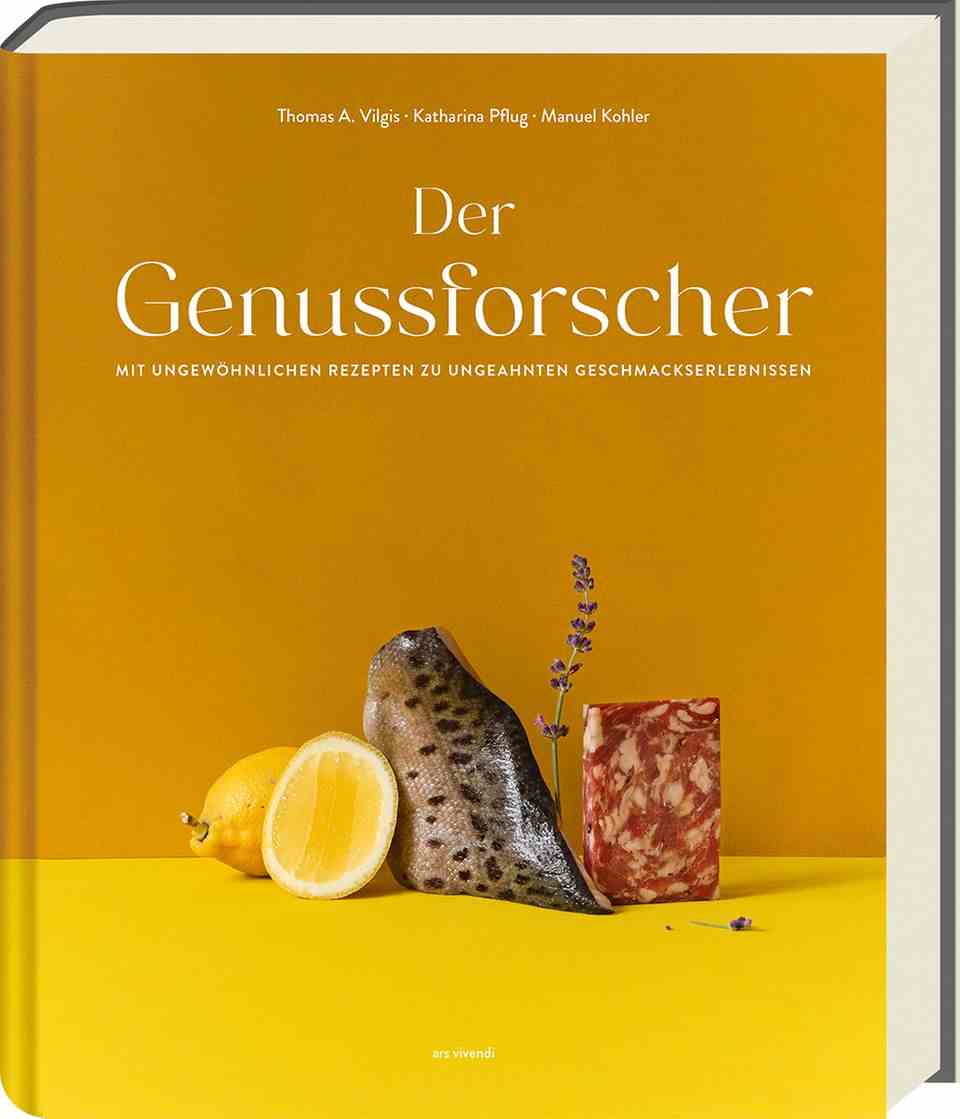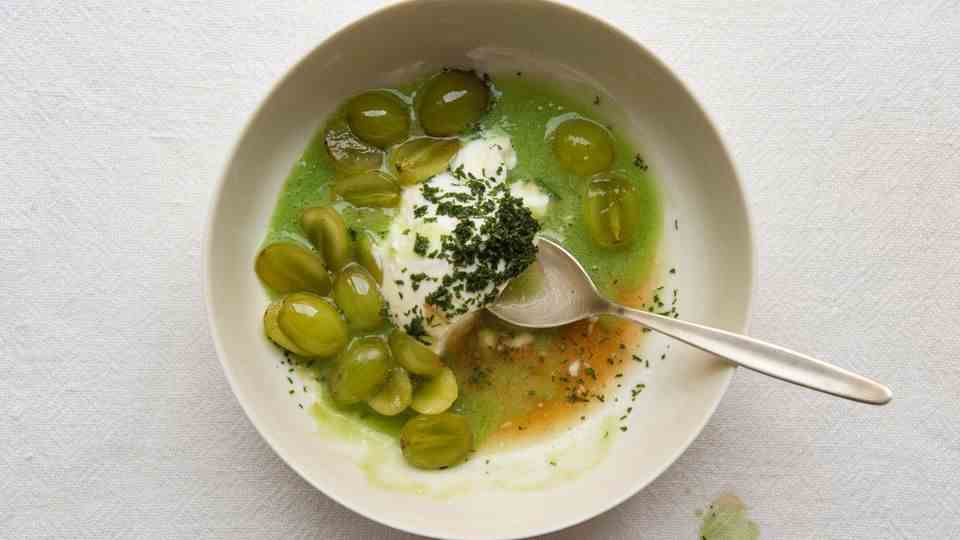interview
Testicles and 1000-year-old eggs
Thomas Vilgis is a pleasure researcher. In the kitchen he doesn’t shy away from anything – almost nothing
Thomas A. Vilgis is someone who doesn’t dread anything when it comes to cuisine.
© Christian Schneider
Thomas A. Vilgis is an omnivore. That must be him. He calls himself a pleasure researcher. A conversation about a job that not only requires a strong stomach, but also few inhibitions.
Mr. Vilgis do you have a sore stomach?
(laughs) Yes, that’s kind of true. I’m an omnivore. So you can say that.
You must have that too. Her job is to experiment with food. You are a physicist, do research in the field of soft matter and also call yourself a pleasure researcher. What is it that you are looking for in the kitchen?
It’s always about taste. You have to differentiate between my work in the laboratory and cooking at home. We have special equipment in the laboratory, and we take a close look at aromas, structures and materials. I also incorporate this knowledge of biology, chemistry and physics at home. Nevertheless, what I do in my private kitchen and also in my new book is of course something completely different.
They say you stop at almost nothing in your kitchen. What’s that supposed to mean?
I taste everything that is edible. If it looks good, smells good, and has a good texture, I have no qualms about it.
Really everything?
Yes. Even testicles. I shied away from that for a long time. Until I tried them on an organic farm in France. I also eat 1000-year-old Chinese eggs, although they taste a bit strange. I don’t even shy away from imitation plant-based shrimp. And they really don’t have a good structure. I would even eat meat from the printer or lab meat if it ever became available. Only …
Well, is there something that spoils your appetite?
These meat alternatives pressed together from different plant substances, I wouldn’t eat them in bulk. They’re too processed for me.
In your book you write that one result of research on pleasure will be “less is more”. What do you mean?
You don’t need the spice orgy. This often even takes away the product’s own taste and overlays it. It doesn’t take much to bring new flavors out of food. An example: Camembert. I get it wrapped in foil from the organic farmer, so it goes in the fridge. I’ll leave it there for two years. So far beyond the specified shelf life. You have no idea what flavors are coming out. The anchovy oil that is left in the can is great for pasta e olio and the beetroot skins, sprinkled with a little sugar, also become wonderful chips in the oven.
So you follow the “Leaf to Root” and “Nose to Tail” concept – use everything if possible, waste nothing?
Sure, I could put the skins in the compost and the mechanically separated meat in the bin. But why? When it comes to vegetables, I would perhaps be happy to have more soil, but the animal has already died for me, so I can please use it as completely as possible. I would eat the bones too. But then they are too hard even for me.
In your book you also invite people to freestyle cooking. Prompt to improvise. In your recipes you combine the ingredients in an unusual way. The vanilla goes with the red cabbage and the coffee goes with the carrot. Hand on heart: how often do your toenails curl up when you taste your new creations?
Rarely. That really hasn’t happened in a long time. But I also have an aroma primer in my head, I know how things harmonize with each other. But actually, with a little instinct, everything can be combined with each other anyway. You just have to be careful with the dosages and not overdo it directly.

Thomas A. Vilgi’s new book “The Enjoyment Researcher: With Unusual Recipes for Unexpected Taste Experiences – Molecular Cuisine” has been published by ars vivendi, 240 pages, 38 euros.
Is the way of cooking that you present in your book suitable for everyday use?
All these dishes can be made in a normal kitchen, you don’t need a laboratory with any expensive technical equipment. Four hotplates, maybe an oven and the usual kitchen utensils. These are dishes that I regularly cook myself, in the evenings when I come home from work. That’s very quick. I can even give a small guarantee that the recipes will work. For the pictures in the book, all the dishes were recreated. I haven’t received a single call with a query during this time. So everything worked out!
That’s what you say. The dishes in your book look like little works of art.
To be honest, it doesn’t look like it at my house either. Serving is one of my weak points in the kitchen. So don’t be put off!



